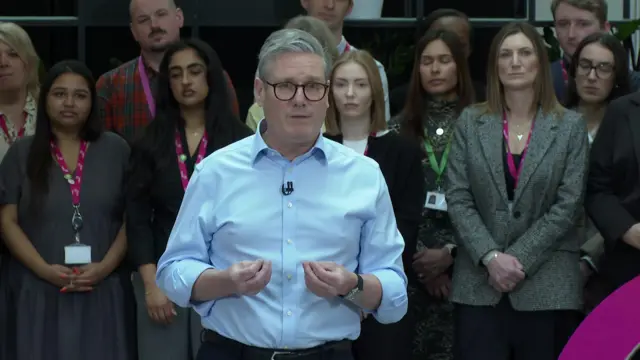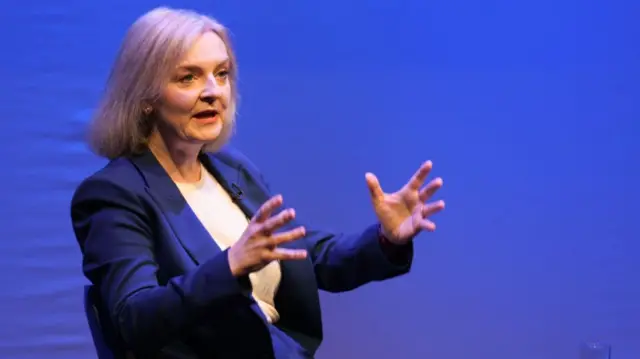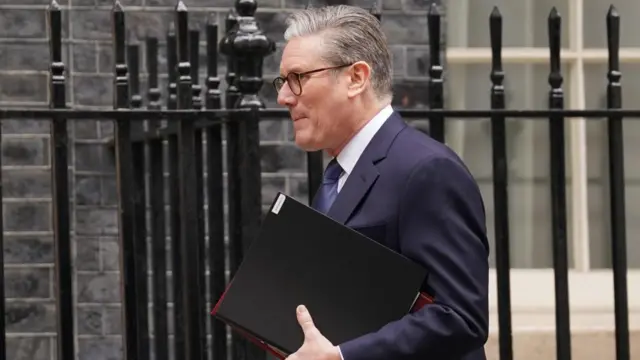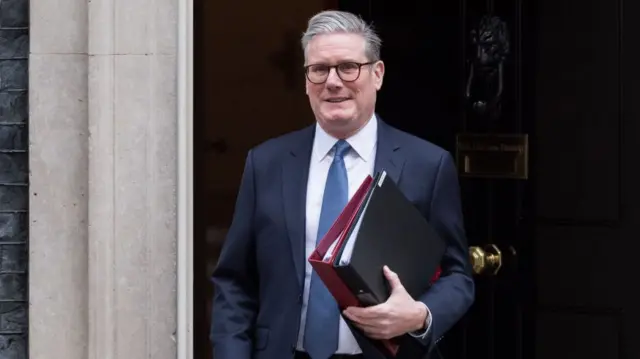Country not strong 'if you lose control of your public finances', PM warnspublished at 10:51 GMT 13 March
Starmer now says the country is not strong "if you lose control of your public finances".
He says he will be focusing on "national renewal".
The PM says the government is already delivering on priorities including NHS waiting lists, which he says have come down for five months in a row.
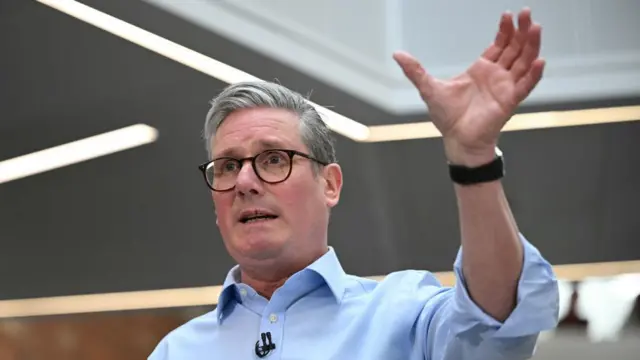 Image source, PA Media
Image source, PA Media
